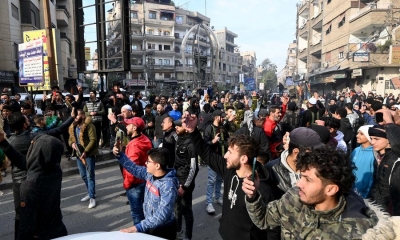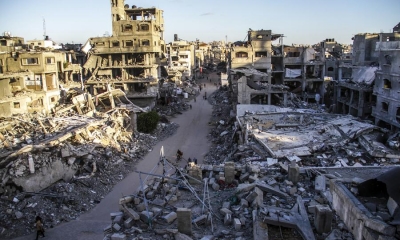The Middle East Crisis Escalates
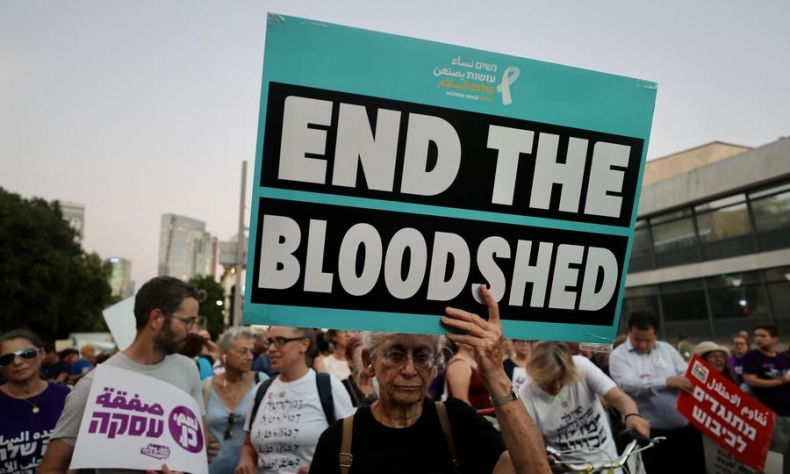
Diplomacy, not war, must be the way forward.
The Gaza crisis has now escalated into a Middle East crisis. The tragic events of October 7, 2023 in Israel led to the savage, and ongoing, retaliatory attack on Gaza by Israel. But the dramatic Israeli assassinations of Hizbollah and Hamas leaders in Beirut and in Tehran brought the regional situation to a new stage of tension and violence.
On July 31, an Israeli air strike against a civilian apartment building in Beirut, Lebanon assassinated a top Hizbollah official, Fuad Shukr. Hizbollah is a decades old resistance movement based in southern Lebanon.
Just hours later, Israel next assassinated Ismail Haniyeh, top political leader of the Hamas resistance organization based in Israeli-occupied Gaza in Palestine. Haniyeh was the lead peace negotiator for Hamas and was involved in the effort to establish a ceasefire in Gaza. He was in Tehran, Iran officially for the inauguration of Iran’s new president. As an official guest he was staying in a government guest house at the time of his assassination.
Iran has a legal right to respond but the question is how much force is needed to establish deterrence against unrestrained Israeli aggression.
Background and context of Hizbollah and Hamas
Hizbollah was created in the 1980s to resist the Israeli occupation of Lebanon. The occupation began in 1982 but Israel was forced by Hizbollah to leave Lebanon in 2000.
Lebanon is a country with diverse religious traditions. There are Christians, Druze, Sunni, and Shia communities. Southern Lebanon is traditionally Shia thus Hizbollah is a Shia resistance movement.
It is important to understand that the Shia community in southern Lebanon has had cultural relations with Iran for five centuries. Back in 1500, the ruler of Iran decided to change religion from the Sunni branch of Islam to the Shia branch. In order to do this, he invited Shia clerics from what is today southern Lebanon to come to Iran to instruct the conversion of his realm.
So, the close relations today between Iran and the Shia community in southern Lebanon, including, Hizbollah, are quite understandable.
As for Hamas, in the past it was the Palestine branch in Gaza of the Egyptian-based Muslim Brotherhood organization which is Sunni. In recent years, it has distanced itself from the Muslim Brotherhood and has aligned on a cooperative basis with the “Axis of Resistance” against Israel. The Axis of Resistance includes Iran plus various resistance movements in Iraq, Syria, and Lebanon as well as the Ansarallah movement, “Houthis”, in Yemen.
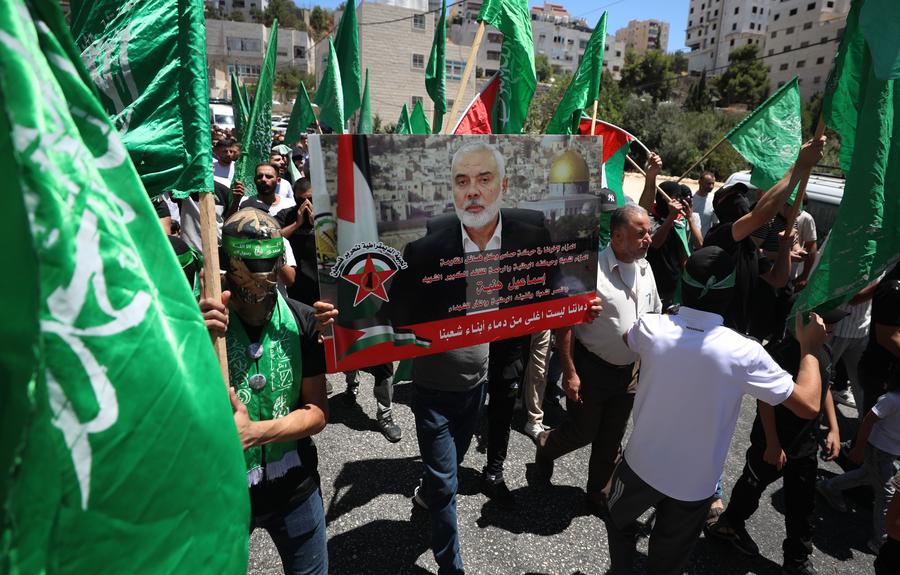
1967 War and Israeli occupation
To understand the situation in Gaza, the results of the 1967 June War, “Six Day War”, must be taken into account. Back then, Israel launched what is considered a pre-emptive attack on Egypt and Syria who were mobilizing military forces in a way that appeared threatening Israel.
In six days, the Israelis crushed the Arab forces humiliating Egypt. The result of this startling Israeli success was the Israeli occupation of the West Bank, Gaza, East Jerusalem, and the Sinai. The Sinai was later recovered by Egypt through diplomacy but the rest have remained occupied to this very day.
International law and Israeli occupation
Under international law, the Israeli occupation is illegal. The United Nations organization has issued a number of resolutions calling for Israeli withdrawal from the occupied areas.
Just recently, the International Court of Justice (ICJ) issued an advisory ruling to the effect that the Israeli occupation of the West Bank, Gaza, and East Jerusalem is illegal. Further, the ICJ ruled that Israel must depart from these illegally occupied areas.
The historic situation under international law is convoluted. Some question the legitimacy of Israel. They argue that the British “Balfour Declaration” promising a part of Palestine to the Zionist political movement was against international law of the time as expressed by the League of Nations.
Because Great Britain had defeated the Ottoman Empire, after the war the victors divided the spoils. In this case, Great Britain and France coveted Middle Eastern areas that were historically Arab but under Turkish domination for centuries.
Newly discovered oil deposits in what are today Iraq and Syria were an important factor. Positioning on the Mediterranean with port access for naval and civilian ships was another factor. To these imperial powers, it seemed natural just to carve up the region with no regard for the people native to the region.
The victorious Western powers in World War I invented a pretext for controlling these areas. Instead of calling them “protectorates” they chose for public relations reasons to call the “mandates” pretending to help the native populations rise to modernity from backwardness.
Syria, Iraq, and Palestine were established as League of Nations mandates. The British empire acquired Palestine and Iraq plus Transjordan. The French acquired Syria.
Although opinion was divided in the ruling class in the United Kingdom, the pro-Zionist political forces gained the upper hand in Parliament and in the various governments post-World War I. The pro-Zionist leaders, such as Winston Churchill, then facilitated the establishment of the Zionist settler colony in Palestine.
The British-backed Zionist settler colony became the state of Israel in 1948 after the partition of Palestine by the United Nations. Since then, Washington replaced London as the protector of Israel. This explains why the United States today is engaged in a massive military effort to support and defend Israel in the current crisis.
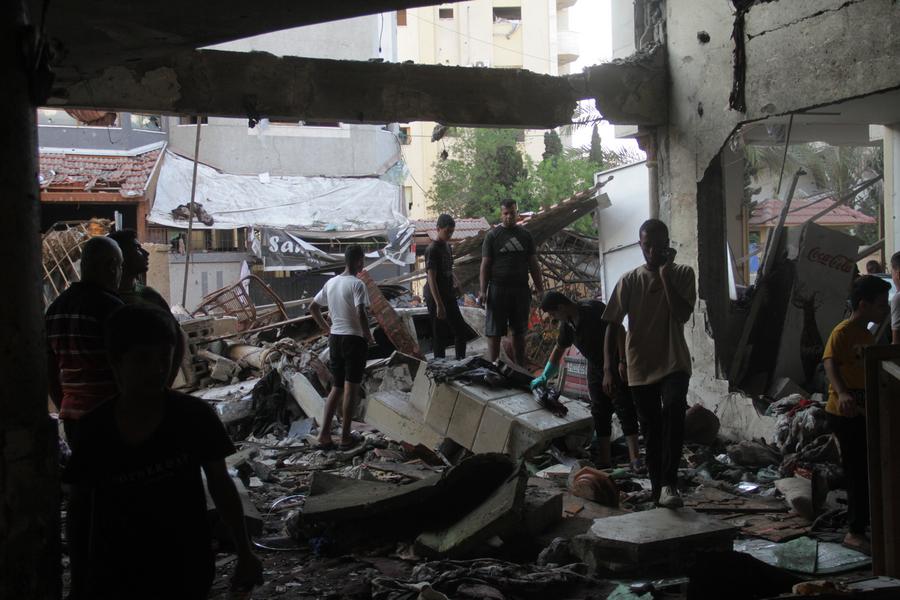
Will the crisis escalate?
The situation in the Middle East has already escalated to a new level. Unfortunately, and tragically, it was not contained after October 2023 events. The escalation began with the massive Israeli invasion of Gaza which continues unabated.
There were no effective steps by the international community to halt Israel’s savage attack on Gaza. Economic coercion could certainly have been used such as an oil embargo and other strong measures. An arms embargo could have been initiated by the United States and by European countries but were not. The United States blocked efforts at the United Nations.
Some ask why the United States has not restrained Israel. The answer, as noted earlier, is that the White House and Congress see the United States as the protector of Israel irrespective of United States broader interests in the Arab and Muslim world. Washington plays the protector role owing to the dominant influence of the pro-Israel lobby in the United States.
The pro-Israel Lobby in the United States has existed since even before World War I. American politicians have supported the political program of the World Zionist Organization and Jewish Agency for a century.
So, what lies ahead?
Hizbollah and Iran have vowed revenge for the recent assassinations. It is obvious that with the lead peace negotiator for Hamas, Ismail Haniyeh, being assassinated the prospects for any negotiations at this time are not bright to say the least.
As noted earlier, the situation already escalated post October 2023. Then, the July 2024 assassinations escalated the situation to a new level. Now, this week, the situation is escalating to yet another new level.
Until the dust settles over the next week or two the new situation cannot be assessed. It may be that a new level of escalation will be established as a result of retaliation by Iran and Hizbollah. Should Israel respond to their actions, however, then the escalation will take another other step up the ladder.
A serious escalation to regional war is in no one’s interest. Countries in the region will be hurt and so will the international community.
Clearly, the United Nations and the international community must do all in their power to contain this crisis. Diplomacy, not war, must be the way forward.
The article reflects the author’s opinions, and not necessarily the views of China Focus.
 Facebook
Facebook
 Twitter
Twitter
 Linkedin
Linkedin
 Google +
Google +






